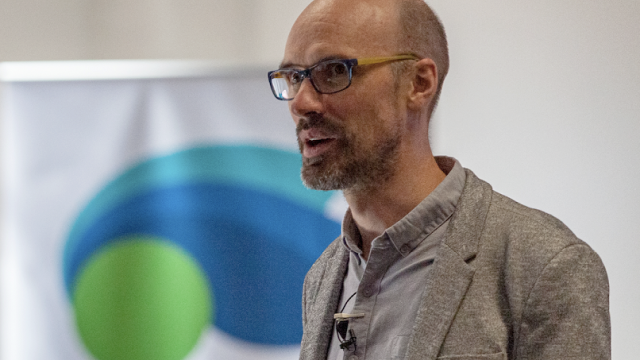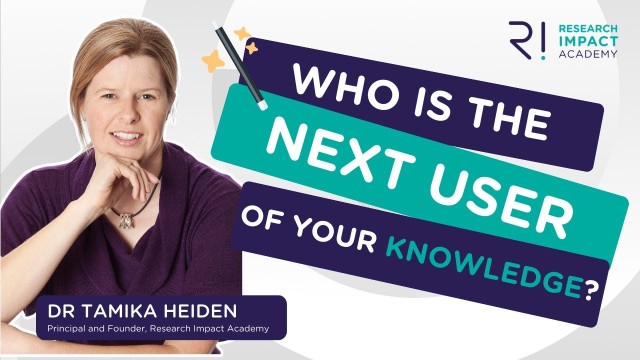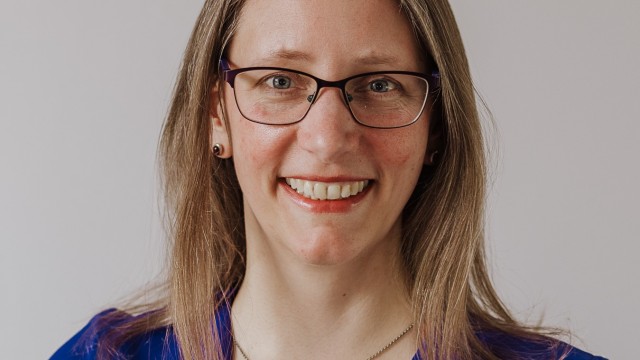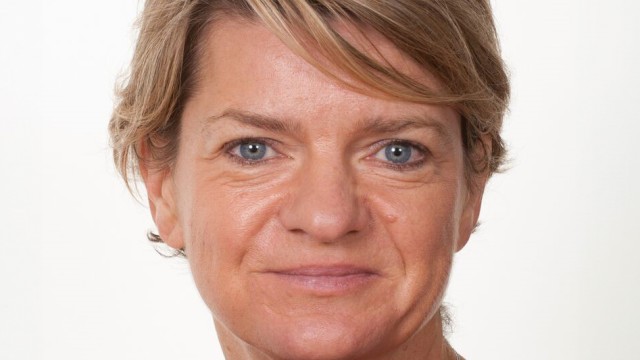

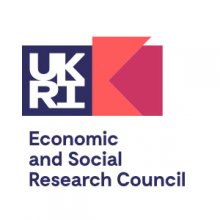
Skills training
The ESRC IAA offers professional and effective training opportunities around impact generation and innovation, with leading external providers. Find out more about how we support researchers at Surrey.
Previous Training

In November 2022 the University of Surrey ESRC IAA team worked with the Research Impact Academy to offer an introduction to impact workshop “Creating, Capturing and Communicating Research Impact”.
These interactive workshops introduced the fundamentals of research impact. It helped participants to understand what research impact is, how to plan for it, and how to easily create more opportunities to take their work to the next level. They gained the skills and understanding of tools to capture meaningful information that can used when writing about impact in grant applications, in assessment case studies, or reporting to research funders and key stakeholders. This workshop helped articulation of impact teaching participants to communicate it in a clear, logical and convincing way.
Introduction to the workshop
- Context setting - why impact is vital and what it means to you
- Understanding the role of prospective and retrospective impact
- What is a pathway to impact?
- The known elements of successful pathways
- How to map your own successful pathway to impact
- Understanding impact activities and outputs
Capturing research impact
- Identifying impact elements - outcomes and impacts
- Learn about impact logic models + our personal adapted model
- Understand indicators for impact
- Capture relevant evidence to show proof of impact
Communicating research impact
- Considering your reader
- Crafting your narrative in a logical and clear way
- Know how to structure your key message and problem statement
- Examples of succinct and strong language
- The ten-step checklist for writing about impact

"The Resilient Researcher" was the fifth and final event in "The Impactful Researcher" series and was held in person.
Researchers face unique challenges: from imposter syndrome, to failed research experiments to isolation and maintaining a good balance in work and life. Resilience is key to managing the twists and turns of life as a researcher. In this session participants explored strategies and approaches to overcome difficulties, maintain balance and keep motivated. Research pressures can be intense this training helped participants to recognise their strengths and apply them so they can bounce back from setbacks and become more resilient in their careers.

"The Science of Self Promotion" Parts 1 and 2 were the third and fourth events in "The Impactful Researcher" series of training events working with Skillfluence.
Part 1 – Personal Brand
Registrants were asked "do you struggle to speak clearly and openly about your successes without it feeling like a humble brag?" This training helped attendees to discover how to self-promote confidently and with integrity in order to elevate their professional profiles:
• Uncovering the science of self-promotion and how to feel more comfortable to increase visibility
• Identifying their niche, difference and brand
• Articulating their unique edge and brand into a professional positioning statement to attract opportunities using their stand as an elevator pitch
Part 2 – Professional Positioning
Participants discovered how to powerfully package and present their personal brand as a marketing strategy for new job opportunities, collaborations, networking and increased impact:
• Distilling skills into clear and concise templated formats for online professional positioning
• Learning foundational strategies to build their networks full of ideal employees, collaborators or key stakeholders
• Harnessing their network

Event 2 of "The Impactful Researcher" series: Daring: Resilience and the Art of Failing Gracefully of training events working with Skillfluence.
The physics of vulnerability. It’s pretty simple: If we are brave enough often enough, we will fail. Daring is not saying, “I’m willing to risk failure.” Daring is saying, “I know I will eventually fail, and I’m still all in.” Brené Brown.
This webinar-workshop took participants 3-steps towards failing gracefully and increasing their resilience.
Phase 1: The Reckoning
Discovery of the pivotal successes and failures throughout life and what can be learnt from the nature of personal failures over time.
Phase 2: The Rumble
Participants used an alternative CV of failures to become more resilient in their approach, separating success and failure from self-worth.
Phase 3: The Revolution
Participants developed leadership tools to address failure positively, give and receive candid feedback without taking it personally and use failure to drive innovation.

In Autumn 2022 University of Surrey ESRC IAA team introduced "The Impactful Researcher" series of training events working with Skillfluence. A series of workshops ran from 20th September to 5th October where participants learnt from professional trainers about various skills and capabilities to enable them to maximise the impact of their research. "The Psychology of Selves: Beyond Imposter Syndrome" was the first event in this series.
Event 1: The Psychology of Selves: Beyond Imposter Syndrome
Many people are torn – afraid to speak up, be seen and at the same time, are frustrated that they are getting in their own way. Feeling like you will be exposed as not knowing enough and also being your own worst critic is a toxic combination. It can result in procrastination, isolation and ruminating thoughts. In this training, participants learnt the three layers to imposter syndrome, where these thoughts and beliefs originate from and three tools to overcome imposter syndrome and fulfil true potential.

This training was arranged to help researchers understand the importance of public engagement and build confidence in their ability to carry out communication with public audiences, whether that be online or in person.
It was facilitated by Dr Helen Featherstone, National Co-ordinating Centre for Public Engagement (NCCPE) and Head of Public Engagement at the University of Bath.
The workshop focussed on the benefits of taking part in festivals, such as the ESRC Festival of Social Science (FOSS) 2022. Researchers built an understanding of the needs of a range of festival-goers, explored activities that could be delivered in a festival setting, developed ideas for research-led engagement activities and considered how to evaluate festival based work.
Following the workshop, some delegates took advantage of the opportunity to have a 15-minute 1:1 session with Dr Featherstone to explore a question or idea about their FOSS public engagement event in more detail.

In preparation for the 2022 Festival of Social Science (FOSS), the University of Surrey ESRC IAA team again worked with Skillfluence to help Surrey's social science researchers take confident steps towards effective public engagement.
This Online Engagement was held on 4th July 2022, 1.00 – 4.00pm
As projects move online there is a need to adapt our engagement practices, tools and processes. Through this interactive session attendees explored how to take their engagement online. They discovered how to find and connect with their audience and create an experience that goes beyond the average Teams meeting or Zoom quiz. They discovered how to make events as accessible as possible and create professional live events easily. The session used a mix of online tools, group discussion and presentation allowing participants to explore and experience a range of online engagement.
The Course Covered:
• How to get the most of your equipment at home
• Identify the dominant models of online engagement
• Have an understanding of different platforms and how to make the most of them
• Understand how to foster meaningful two - way dialogue online
• Plan appropriate online evaluation for your engagement
• Know to make online events accessible, safe and ethical.

On 27th June 2022 our researchers explored how storytelling can help engage with audiences, to learn easy to use techniques and tools applicable to research presentations and how to speak so people listen. In this introductory workshop delivered by Skillfluence and Jamie Gallacher, the participants explored why and how storytelling can be an effective tool for engagement helping them to use powerful storytelling techniques in presentations, public engagement activities and workshops.
The session covered:
• Know why stories are powerful. • Understand which stories to tell. • Know simple techniques for telling stories. • Understand when to use research storytelling. • Practice storytelling and find out how to start a research storybook.
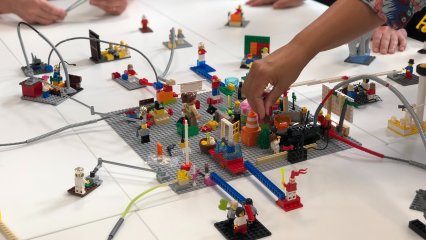
In order to support new, innovative and imaginative approaches to Knowledge Exchange (KE) and impact, including processes that enable “fast failure” and appropriate learning, the ESRC IAA team engaged with Make Happy to employ their Lego Serious Play approach. An online workshop was held on 12th May 2022 to help colleagues think creatively and in imaginative ways about approaches to and institutional support for impact generation, innovation and knowledge exchange.
The virtual Lego Serious Play session allowed participants to experience an immersive, creative approach to strategic thinking and innovation. During the session model making and storytelling was used to explore some of the key challenges researchers and institutions are facing around impact generation, innovation and knowledge exchange, in order to come up with new solutions and ideas.

From 28th October 2021 Surrey Researchers participated in a Skillfluence Future Innovators interactive 6 week programme, (2 hours/week), to equip them with the tools, skills and confidence to lead, facilitate and enable innovation. This programme was led by Julia Shalet, also known as the "Product Doctor", an award-winning innovator, product mentor, qualitative researcher, university lecturer & trainer with over 20 years of experience moving forward new ideas and bringing successful new products and propositions to market.

The Universities of Surrey, Essex and Sussex came together with the SeNSS DTP to deliver the ESRC-funded Business Boost 2020 project. Through this, many of our researchers will have accessed a number of different workshops, programmes and training events to develop skills and improve their capabilities around business engagement and collaboration. This was their chance to put all of that knowledge to the test through this 3-week live challenge programme.
The ESRC Business Boost MultiMind Challenge, in partnership with Skillfluence, launched on 26th July. Using the principles of 'design thinking,' researchers worked together to apply their skills to a real-world opportunity or challenge, presented by our partner Aguardio, who have been named a Top 100 United Nations World Tourism Organisation (UNWTO) start up!
The aim was for the partner company to benefit from the input of a world class team of researchers, whilst the researchers gained access to a unique learning and development opportunity. It was an online, time-limited collaborative activity that culminated in each team of researchers pitching their solution back to the partner and prizes were be awarded to the winners.

This training workshop will help researchers understand the importance of public engagement and build confidence in their ability to carry out communication with public audiences, whether that be online or in person.
It will be facilitated by Dr Helen Featherstone, National Co-ordinating Centre for Public Engagement (NCCPE) and Head of Public Engagement at the University of Bath.
The workshop will also focus on the benefits of taking part in festivals, such as the ESRC Festival of Social Science (FOSS) 2021. Researchers will build an understanding of the needs of a range of festival-goers, explore activities that could be delivered in a festival setting, develop ideas for research-led engagement activities and consider how to evaluate festival based work.
It will be a practical course full of examples, with some time for participants to think about their own ideas. Helen will also be reflecting on everything our researchers will have learnt on the various online training courses that have made up the ESRC IAA 'Spotlight' on public engagement. She'll also be considering public engagement in the context of Covid-19 and the changing nature of how we are currently all working.
Following the workshop, delegates may wish to take advantage of the opportunity to have a 15-minute 1:1 session with Dr Featherstone to explore a question or idea about their FOSS public engagement event in more detail.
The NCCPE say, "participants are enthusiastic about the experience we deliver, appreciating the interactive approach we take to training, whilst developing effective skills that they can use in their work."
The workshop will take place online through the NCCPE's interactive software platform, Blackboard Collaborate - you will not need to download anything to take part in the training. You will simply need access to a computer or device and an internet connection. Guidance and technical support will be provided throughout to ensure a smooth experience.
Spaces are available for up to 25 delegates and will be allocated on a first come, first served basis. The workshop is being funded by the Surrey ESRC IAA; if you have registered and then are unable to attend, please let us know asap so that we can allocate your space to another person.

Creating Activities: Helping Researchers Design Quality Engagement
19th & 20th May, 2.00 – 4.00pm - (Runs over two days*)
Looking to make your public engagement ideas a reality? Or want to upscale your current projects? Then this interactive workshop is for you.
Finding the time, space and creativity to come up with new and exciting activities for engagement can be challenging. This workshop will arm you with the tools for good event planning and challenge your creativity as you design and develop quality engagement projects.
Explore how to create the perfect public engagement tailored to your skills and subject. Discover how to create a lasting impression by enthusing audiences, developing demos, producing artworks and working with communities.
Whether you are new to engagement or looking to get new perspectives on what you can do to improve, this workshop is packed with tips, tricks and strategies to help you explore the research engagement landscape, manage your time and generate impact.
You will also get a backstage look at how successful engagement projects are designed, developed and delivered.
What the session will cover:
• How to create interactive and informative engagement projects/events.
• Planning realistic timescales and budgets for engagement events.
• Preparing intervention appropriate evaluation processes.
• Understanding how to grow audiences and reach new groups.
• Use of demonstrations and visual aids to create lasting impressions
About the Trainer
Jamie is an award winning engagement professional specialising in impact narratives and evaluation. Working across dozens of institutions and subject areas he has improved the reach, profile and impact of research engagement in almost every academic discipline. Find out more about Jamie via his website.

Communicating with Impact
12th May, 10.00am - 12.00pm
Proven communication techniques that help researchers inspire, influence and achieve big impact. This fast-paced, interactive and applied masterclass helps researchers ‘connect the dots’ between effective communications, successful funding applications, societal impact and career success. Researchers learn impactful communication tools and techniques used in academia, business and the dramatic arts. The tools and skills they learn will help participants create compelling and persuasive research proposals and funding applications, deliver engaging presentations, have productive conversations with industry partners and investors and effectively engage with a wide range of community stakeholders.
• Using the power of numbers to create excitement
• How to adjust your language for maximum impact
• The power of metaphors to explain complex ideas
• Benefits vs features (their roles and when to use)
• Techniques for bringing abstract ideas to life
About the Trainer
Zach Sorrells has been working in the field of innovation and entrepreneurship for over 15 years. He’s an experienced trainer, facilitator, coach and entrepreneur and believes in a disciplined, structured and systems-based approach to innovation and business growth. He has applied, or taught, this approach in a variety of roles with individuals, companies and organizations ranging from multi-nationals, SMEs, economic development agencies, universities, SMEs, angel investors, startups and high school students.

Storytelling for Researchers
10th May, 10.00am - 12.00pm
Explore why storytelling can help you engage your audience, learn easy to use techniques and tools that are applicable to research presentations and find out how to speak so people listen. In this introduction to storytelling participants will explore why storytelling can be an effective tool for engagement. These ideas can be powerful and will help participants wanting to use storytelling techniques in presentations, public engagement activities and workshops as the base concepts that drive engagement via storytelling are transferable.
What the session will cover:
• Know why stories are powerful.
• Understand which stories to tell.
• Know simple techniques for telling stories.
• Understand when to use research storytelling.
• Practice storytelling and started a research storybook.
The course will be led by Duncan Yellowlees.

Online Engagement for Researchers
6th May, 2.00 – 5.00pm
As the world turns to the online space to meet, connect, and share it is essential to make your voice stand out. As our projects move online, we need to adapt our engagement practices, tools and processes. Discover how to find and connect with your audience and create an experience that goes beyond the average Teams meeting or Zoom quiz. Discover how to make events as accessible as possible and create professional live events easily. The session uses a mix of online tools, group discussion and presentation allowing you to explore and experience a range of online engagement.
What the session will cover:
• Know how to get the most of your equipment at home.
• Identify the dominant models of online engagement.
• Have an understanding of different platforms and how to make the most of them.
• Understand how to foster meaningful two-way dialogue online.
• Plan appropriate online evaluation for your engagement.
• Know how to make online events accessible, safe and ethical.
About the Trainer
Jamie is an award winning engagement professional specialising in impact narratives and evaluation. Working across dozens of institutions and subject areas he has improved the reach, profile and impact of research engagement in almost every academic discipline. Find out more about Jamie via his website.

A Guide to Social Media for Researchers
5th May, 2.00 – 5.00pm
Getting your work on social media may be easy - but making it popular is more challenging. This workshop takes you through the main social media channels and looks at how to create short, sharp, sharable messages. Discover how to use social media to foster meaningful interactions and share your work with as many people as possible.
What the session will cover:
• Using social media as a research tool.
• Raising your profile with social media.
• Twitter, LinkedIn, Instagram and Facebook.
• How and who to connect with.
About the Trainer
Jamie is an award winning engagement professional specialising in impact narratives and evaluation. Working across dozens of institutions and subject areas he has improved the reach, profile and impact of research engagement in almost every academic discipline. Find out more about Jamie via his website.
The Surrey IAA team held an internal 'Impact Leads' workshop to look at what they saw as the biggest challenges in building and generating impact across their schools and departments.
We did an exercise on facilitated horizon-scanning, helping impact leads to think about what opportunities might exist within their units for potential IAA projects.
Finally, we came back as a group to think about what next steps would be useful and these included; building collaborations, developing a network of impact leads across the University and training and development ideas.
This was a highly valuable workshop, the outputs and actions of which we are now in the process of following up on and developing further, so that we take productive steps towards embedding an impact culture across the University where social science is concerned.
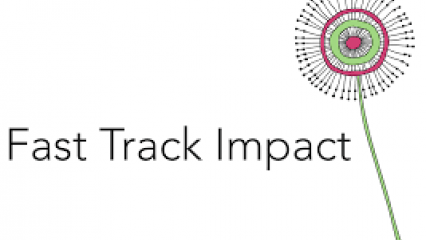
The University of Surrey ESRC IAA team welcomed Professor Mark Reed for his Impact Culture workshop on 25th February 2021.
About the course:
As researchers, we have less time than ever before. Impact is the latest expectation from our funders, Governments and Universities. As the pressure rises, we lose our time to think, and the academic freedom to create and be curious. Healthy impact cultures happen on purpose. The Impact Culture course from Fast Track Impact enables you to co-create an impact culture with your colleagues that draws people to impact on their own terms (whether they want to stimulate economic recovery or fight capitalism). These are cultures that celebrate the kinds of “unsung impacts” that inspire and motivate us, empowering us to do the best work of our careers.
Expected outcomes:
- Understand your research culture, considering how your approach to research, identity and values, and community enables impact.
- Use diagnostic questions to identify bright spots and issues in your impact culture.
- Explore how your personal impact priorities emerge at the intersection between your professional identity and your values, and identify personal and institutional actions that could enable you to achieve those priorities.
- Identify your spheres of influence and levels of trust within and beyond your academic community, and think beyond current impacts to identify new benefits, for example working with hard-to-reach groups or sector-hopping.
- Learn from evolutionary organisations, contrasting top-down change management linked to extrinsic incentives from funders, with more bottom-up approaches that draw on your intrinsic motivations.
- Design your own experiment to experiment with small, safe changes that you can evaluate and scale to do the best work of your career.
- Write a message to your future self (with actions and conversations you want to commit to). You’ll receive your message back in around a month to remind you to do your actions and have your conversation.
- You get a PDF copy of The Research Impact Handbook (2nd Edition), with a hard copy to follow. Prof Reed answers all queries from participants within a week, to ensure you have support to change your impact culture for the better.
About the trainer:
Professor Mark Reed is a recognized international expert in impact research with >150 publications that have been cited >18,000 times. He holds a Research England and N8 funded chair at Newcastle University, is research lead for an international charity and has won prizes for the impact of his research. He collaborates and publishes across the disciplinary spectrum, from the arts and humanities to natural sciences, and he reviews research for funders around the world. He has been commissioned to write reports and talk to international policy conferences by the United Nations. Mark provides training and advice to Universities, research funders, NGOs and policy-makers internationally, and regularly works with business. Find out more about his work at: www.profmarkreed.com or follow him on Twitter @profmarkreed
In January 2021 the Surrey ESRC IAA team took part in the FASS Festival of Research, holding an online event to showcase all that the IAA has to offer.
Academics who have been successful in applying for IAA funding of various streams, with a variety of topics, presented on their work - and we also explained more about the value of taking part in the ESRC Festival of Social Science.
The IAA's Business Boost activities were highlighted, and Tamsin Woodward-Smith gave an engaging and informative presentation about the IAA and the opportunities available.
You can watch the event on our YouTube channel.
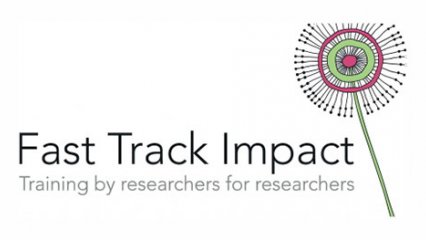
The workshop was based on research by Professor Reed and the latest thinking on how to get research evidence into policy. Drawing on his own research and experience, Professor Reed takes a unique relational approach to working with policy makers that can be adapted to any government or organisation.
The course started with tools to plan policy impacts more effectively and efficiently, before introducing tools for policy briefs, with an exercise to consider how to create an effective brief. Then, Professor Reed considered how researchers can go beyond their contribution to consultations and inquiries, to affect change from the bottom up and the top down, via more informal channels.
The workshop gave participants an opportunity to debate and consider their own ethical boundaries, so they can safely become more relational and hence more impactful, without crossing red lines. The session concluded with a consideration of how to evidence impacts of research on policy.
The event was created specifically for University of Surrey social science researchers who applied to deliver a public engagement event for the ESRC's Festival of Social Science 2020.
The workshop was delivered by Dr Helen Featherstone who is Head of Public Engagement at the University of Bath. NCCPE deliver a range of training courses across the UK and online, to support researchers in developing high quality engagement work, thereby also supporting the communication of impact.
NCCPE said, "Participants are enthusiastic about the experience we deliver, appreciating the interactive approach we take to taining, whilst developing effective skills that they can use in their work."
